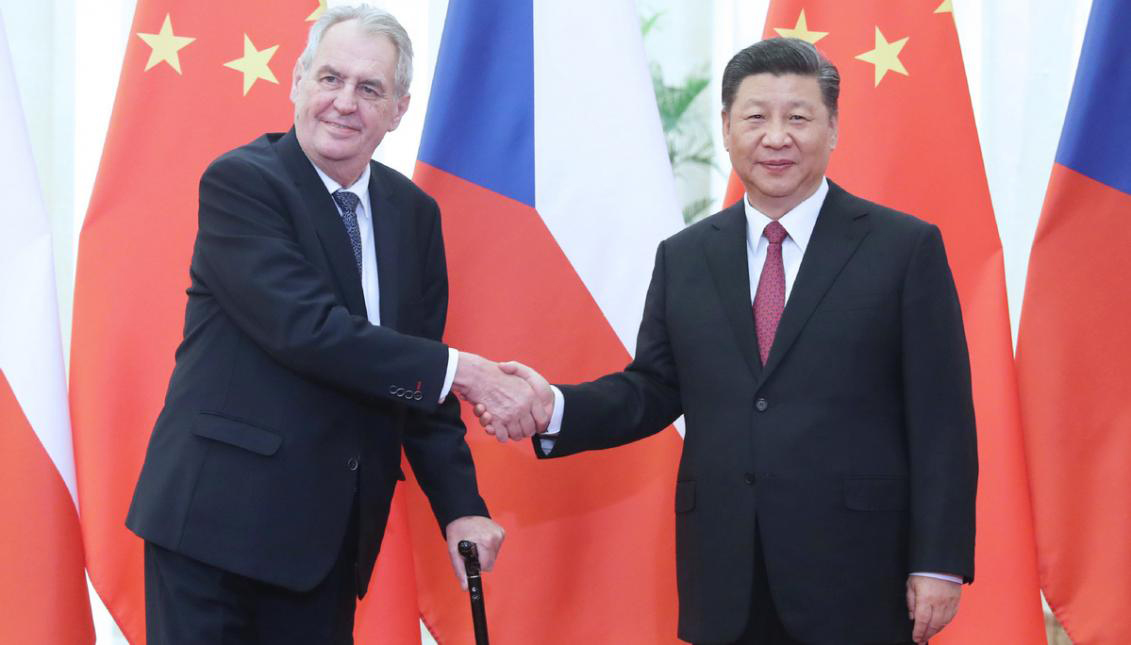
China filling the U.S. void in Latin America
MORE IN THIS SECTION
The United State's foreign policy towards Latin America has led to the ever growing presence of China in the region.
This is due to the United States faltering on two main plans they had for the region, those being the Monroe Doctrine and Pan-Americanism.
The Monroe Doctrine was born out of a speech President James Monroe gave to congress in 1823 after many countries in Latin America gained independence.
In his speech, Monroe laid out that “American continents, by the free and independent condition which they have assumed and maintain, are henceforth not to be considered as subjects for future colonization by any European powers. . .”
Monroe followed by saying that any efforts from European powers to recolonize Latin America would be seen as a hostile act against the United States. The issue with the implementation of the plan today is that it makes the U.S. government believe that they should play a perennial role in Latin American affairs.
This was most notably seen in U.S’s attempts to squander revolutionary left-wing uprisings during the Cold War era.
Pan-Americanism began with inter-American conferences that were organized in the late 19th century that incorporated leaders of countries in the Americas. The idea sought to create a strong diplomatic and economic cooperation among all states in the Americas.
With the United States being involved in regime-change wars in Latin America and implementing harsh sanctions on several countries, these do not resemble strong diplomatic and economic relationships.
The United States has also not done much in the way of helping to lift the region out of the dire state it is in.
It has paved the way for China to heavily invest in Latin America and be seen as a core power that actually believes in the region. China filling the void left by the United States could make American influence in the region severely diminish.
This would prove to be disastrous for the United States as China is using their own backyard to continue the Belt and Road initiative.
Where the United States left wounds in Latin America, China would come along to repair damages and strengthen relations in the region.
The first example lies in Panama, where in 1903, the United States forced Panamanian independence from Colombia to later have complete ownership of the area surrounding the Panama Canal.
The United States completed the canal in 1914, but did not relinquish ownership to the Panamanian government until 1977, when President Carter and Panamanian dictator Omar Torrijos signed the Panama Canal Treaty.
That would be the end of peace as the United States would have deep ties with future Panamanian dictator Manuel Noriega.
He was on the C.I.A.'s payroll because he provided information on the drug trade. Politically, Noriega turned out to be a repressive dictator and the United States had some justifications in eventually setting out to capture him in late 1989.
The problem was, the U.S. invasion in Panama was the largest U.S. military operation since Vietnam and it killed nearly 1,000 Panamanians.
In contrast, since Panama opened diplomatic relations with the People’s Republic of China in 2017 and ceased to recognize Taiwan, a long- time U.S. ally, the two countries have established over 30 bilateral agreements and China announced a $4 billion high speed railway project for the country.
An example of the United States reacting poorly to a left-wing leader coming to power can be seen with the Nixon administration’s resentment towards Salvador Allende winning the presidency in Chile in 1970.
When Allende first ran in 1964, the C.I.A spent $3 million to back his opponent Eduardo Frei Montalva, who was of the Christian-Democratic party.
RELATED CONTENT
Allende was defeated then, but won in 1970, leading the U.S. to manipulate the Chilean public to view him unfavorably. The U.S. stopped economically supporting Chile and the country later suffered from mass inflation.
The C.I.A later helped fund El Mercurio newspaper, which published several articles opposing Allende’s new policies.
In 1973, Allende allegedly committed suicide after a military coup backed by the U.S. bombed part of the presidential palace on September 11, 1973.
This brought Augusto Pinochet to power and with that, the U.S. brought an end to 50 years of democracy in Chile.
In the 17 years that General Pinochet was in charge, he censored the media, tortured thousands of members of the political opposition, and disbanded the national congress.
The U.S. went against the will of the Chilean people to put a far-right dictator charge and avoid the spread of socialism.
Since the turn of the century, the U.S. has been absent in Chile, but China has taken advantage to make serious investments in the country.
According to the Financial Times, “China-based Tianqi Lithium Corp snapped up a 24 per cent stake in Chilean lithium miner SQM for $4bn, the country’s biggest foreign investment in 2018. Chinese companies have also invested in Chile’s electricity, renewable energy, salmon and fruit sectors in the past year.”
These are not the only two countries in the region where China is making serious investments. Brookings reported that for the five-year period between 2015 and 2019 China set goals of investing $250 billion in Latin America and having $500 billion worth of trade between them and the region.
Xi Jinping has now made China their largest creditor with all of their infrastructure investments far surpassing the U.S.
China does not need to fire a bullet or overthrow a leader to make headway in Latin America.
They have taken advantage of the United States’ foreign policy blunders to grow their influence, power, and standing in the world.







LEAVE A COMMENT:
Join the discussion! Leave a comment.